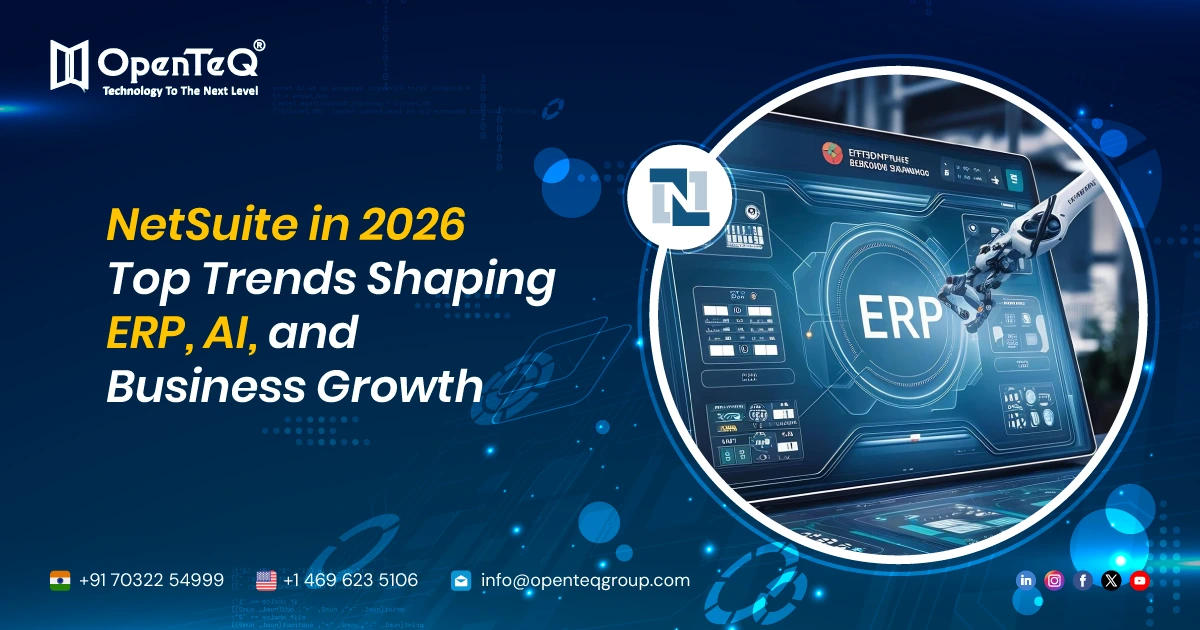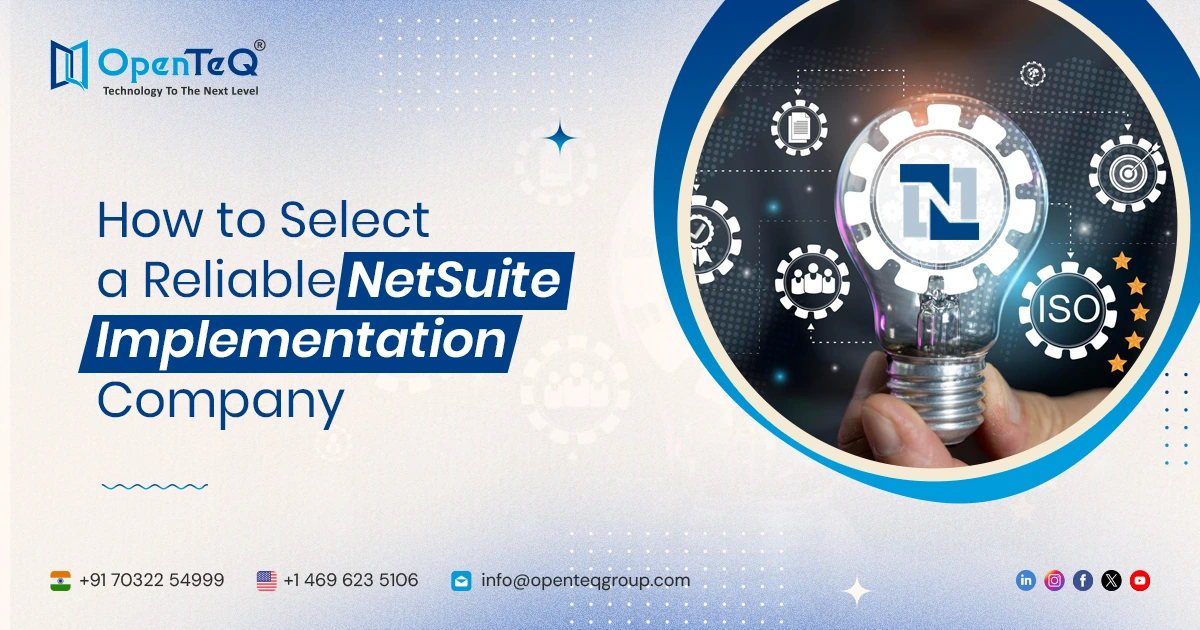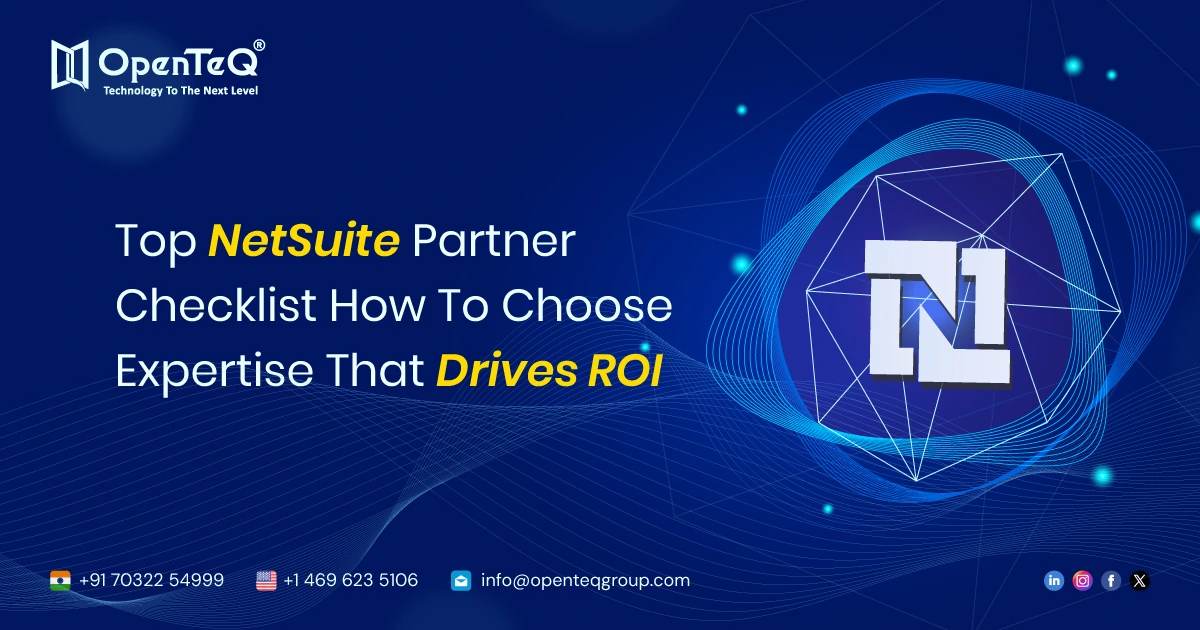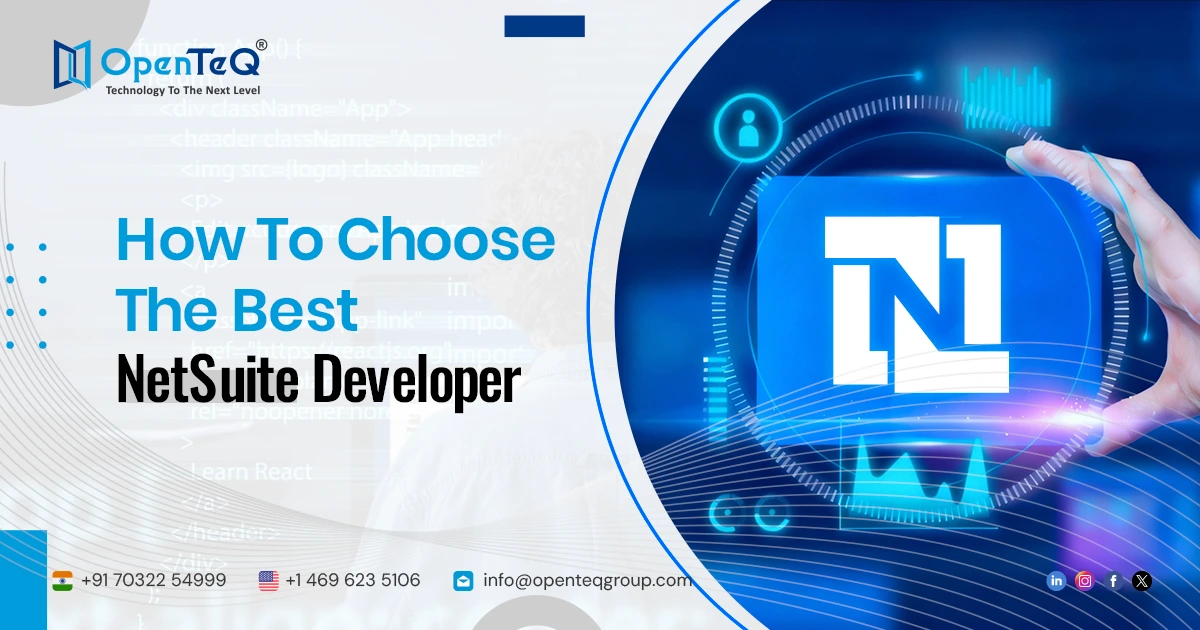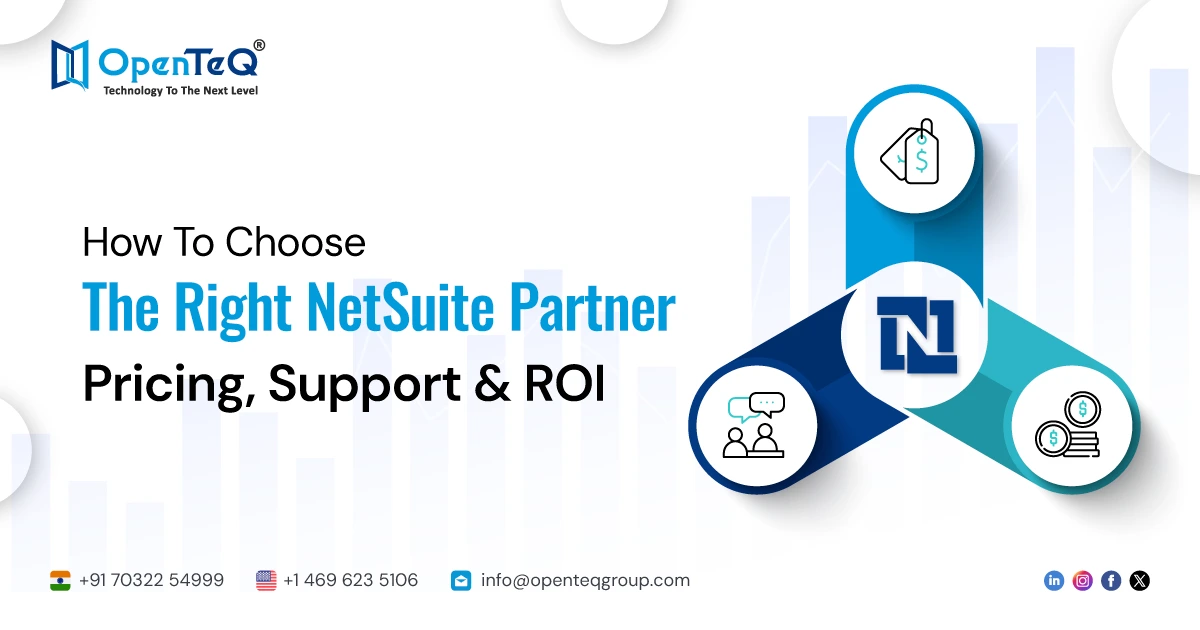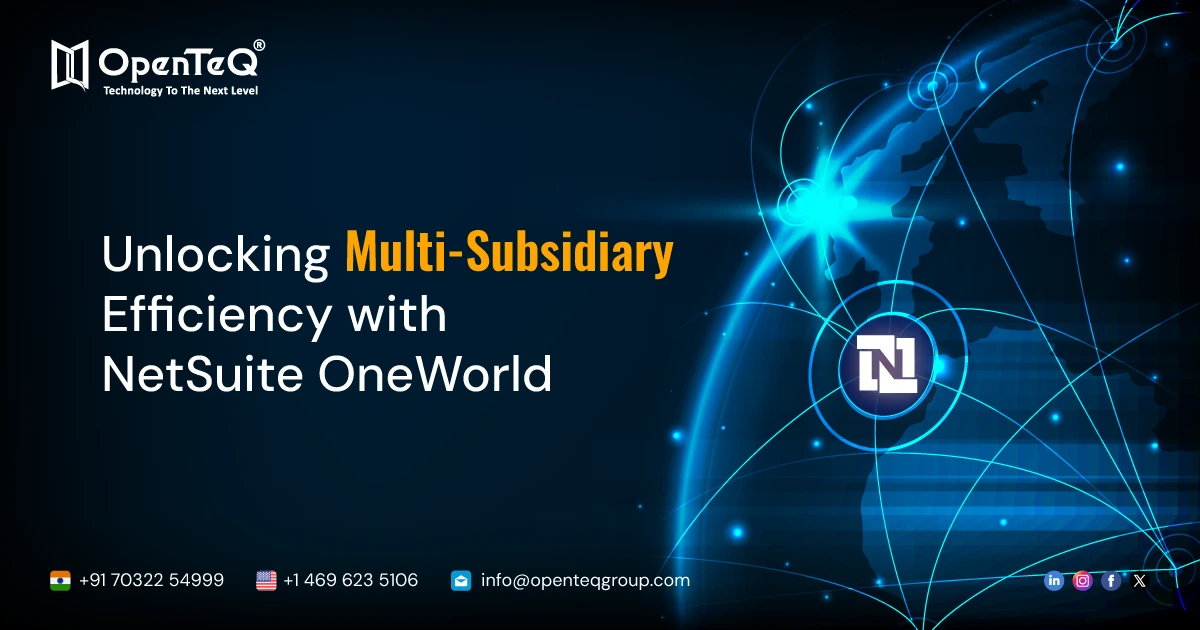The Complete Guide to NetSuite Go-Live in 2024
Fragmented data is dispersed across siloed systems. Manual workflows stall operations and blind your decision-makers. Sounds familiar?
If we've encountered a stumbling block, there's a significant likelihood that inefficiencies are eating away at your resources, profits, and goals. But that's why you're so serious about integrating NetSuite in your firm, right?
As we've previously noted, a cloud-based ERP like NetSuite may be truly revolutionary for a business, combining innumerable moving elements into a single but expansive, nuanced, and in-depth perspective that steers the organization forward. That's why we're taking this chance to go over the intricacies of a successful NetSuite deployment.
Indeed, when executed with the utmost care and attention to detail, this kind of work may be rather demanding and necessitate extensive planning, perseverance, expertise, and vision.
Getting Ready for the NetSuite ERP Implementation
You need a reliable map and compass before setting out on your business resource planning journey. Here's where careful, thorough pre-implementation planning comes into play—a methodical procedure that sets the groundwork for a seamless transition to cloud ERP.
You need a reliable map and compass before setting out on your business resource planning journey. Here's where careful, thorough pre-implementation planning comes into play—a methodical procedure that sets the groundwork for a seamless transition to cloud ERP.
1. Setting the Course: An Evaluation of Business Maturity
Consider this to be your company's NetSuite software diagnostic scan, a thorough evaluation of your company's preparedness. Here, you're shedding light on how your business is internally managed and evaluating your:
Data Quality: Do your current systems include a wealth of precise, dependable, and easily accessible data? Or are you battling redundant information and inconsistencies that could lead to problems with integration down the road?
Technology Readiness of the User: To what extent do your team members feel at ease using new technologies? Do they possess the fundamental knowledge and expertise needed to handle NetSuite's complexities?
Current Procedures: Are your present procedures streamlined and effective, or do you have manual processes and antiquated systems that can make the switch to NetSuite more difficult? For a thorough discussion of the subject, please refer to our earlier ideas on pre-implementation process scoping and improvement.
Knowing your advantages and disadvantages will help you foresee possible obstacles and take proactive measures to overcome them. When it comes to a NetSuite deployment, in this sense, a clean slate is a happy slate.
2. Choosing the Route: Establishing Objectives and Success Criteria
Your NetSuite journey needs a clear destination, just like any other initiative. How does your organization define success? Is it improved customer relationship management, more streamlined financial reporting with user-friendly data dashboards, or perhaps more operational efficiency?
Make sure your objectives are SMART—specific, measurable, achievable, relevant, and time-bound—by defining them with laser-like accuracy. Next, create success measures so you can monitor your advancement. These indicators will serve as your reliable compass, pointing you in the direction of your goals and making sure your execution stays on course.
3. Terrain Mapping: Project Scope and Viability
Now that you know where you're going, it's time to map the terrain. This entails specifying the precise NetSuite features and modules you'll be integrating as well as creating a clear project scope. In this case, it's usually best to start small and work your way up, making sure you can walk before you run.
The project's viability within your financial and schedule restrictions should then be evaluated by conducting a feasibility study; we'll talk more about those later. Analyzing resource availability, possible hazards and mitigation techniques, and a workable implementation schedule are all necessary for this.
By following these initial steps, you may prevent scope creep and make sure your NetSuite endeavor is well-planned, well-resourced, and eventually successful.
Put Together a Fantastic Team to Implement NetSuite
You're not alone in your pursuit of ERP supremacy. Not at all. You need to put together a high-performing team with the abilities, know-how, and commitment to complete your project in order to succeed in navigating the challenges and reaping the greatest gains from NetSuite.
Identifying Your Roles and Champions
Your project team should function as a well-oiled unit as a whole, with each member contributing significantly to the seamless operation of the whole. The following players are essential to have on board:
Executive Sponsor: This powerful advocate assures resources are available, sets strategic direction, and sustains the momentum of implementation.
Client Project Manager: Your on-the-ground quarterback, in charge of daily operations, in charge of communication, and responsible for keeping everyone on schedule.
Owners of business processes (BPOs): BPOs lead the team toward effective NetSuite workflows because they have extensive familiarity with the current procedures.
Lead for Change Management: Getting used to new systems might be intimidating. By reducing opposition and encouraging user adoption, this function makes sure the shift goes smoothly.
The Core Implementation Team is your first line of defense; they work hard to migrate data, customize NetSuite, and train end users.
Project Manager for Partner: If you deal with a NetSuite implementation company—which we strongly advise—their project manager will collaborate with you to ensure a cohesive strategy.
Technical Architect: The architect creates the NetSuite ecosystem's technical framework, guaranteeing security and scalability.
Business analysts: By bridging the gap between technical specifications and business needs, they make sure your system is in line with your objectives.
NetSuite Welcomes OpenTeQ Technologies as a Strategic Partner
Reliable NetSuite Implementation Techniques
Now that you've completed so much of the groundwork, it's time to add even more detail by selecting a real implementation methodology. Once more, to navigate what lies ahead, you need a map and a sense of direction. The appropriate approach will enable you to go as efficiently as possible from your current state to your ideal future state.
We're giving you a sneak peek at an implementation process we use at OpenTeQ to help you understand . As you can see, it is broken down into distinct phases, each of which acts as a stepping stone to your ultimate transformation:
Start: Covering all your prior work and much more, this initial stage establishes the project framework by working together to create specific objectives, budgets, and schedules through workshops. Here's where you put together your ideal team, complete with the NetSuite implementation partner of your choice. Perform a thorough examination of your business processes to find areas that may be streamlined and improved.
Design: Convert your specifications into a thorough configuration plan that outlines the best possible workflows, user roles with fine-grained permissions, and integration requirements. To make sure the design satisfies user needs and your vision, make use of user testing and prototyping. Recall that early user acceptance is essential to a seamless transition.
Develop & Validate: Bring your design to life by configuring modules and making necessary customizations while keeping future scalability and best practices in mind. Carefully transfer data while ensuring correctness and integrity by employing strong cleansing methods. Before launching, thoroughly test your settings in a sandbox environment to discover and fix any potential bugs.
Deploy: Provide thorough training and continuous user assistance while you introduce your new NetSuite system with the least amount of disturbance possible. Celebrate your achievement with your team and stakeholders recognizing the combined effort and dedication that got you here.
Operate & Continuously Improve: Adopt a continuous improvement mindset by keeping an eye on performance indicators, getting input from users, and adjusting as necessary. Keep in mind that NetSuite is dynamic ERP software. Rather, it needs to develop with your company. To ensure that your NetSuite investment continues to yield the most return, this phase is where your partner's proficiency in system optimization and best practices really shines.
Following a tried-and-true methodology gives your implementation structure and organization and guarantees that each phase is finished methodically and quickly.
Nevertheless, there will be bumps and detours in any implementation plan, no matter how careful. As such, you also need to foresee obstacles in the real world and come up with solutions for them:
Data Migration Complexities: With a well-defined migration plan and data cleansing methods, be ready for possible data discrepancies or formatting challenges. Collaborate with your implementation partner to pinpoint possible obstacles and employ countermeasures such as phased data migration or quality assurance.
User Resistance to Change: Adopt best practices for change management so that your staff is prepared and confident to handle the shift. Encouraging dialogue, thorough training, and confronting issues head-on can facilitate seamless user adoption. To acquaint users with the new technology in a relaxed setting, think of early communication workshops or pilot programs. Here's another area where hiring outside experts could make them your closest pals in no time.
Problems with Integration: Carefully consider how to integrate your systems with other ones, making sure that data is synchronized and compatible. Once more, outside knowledge can help steer clear of such dangers and guarantee smooth communication between all platforms. Recall that extensive testing in the "Develop & Validate" stage can aid in locating and averting more integration-related issues.
Admittedly, this has only been a cursory examination of one approach. But you get the idea: it's critical to implement the plan with a thoughtful, systematic approach, where actions build upon one another and effectively advance the initiative. Selecting the ideal partner for your requirements will be helpful in selecting the appropriate approach right away, even at the risk of sounding like an implementation advertisement already.
Even after today's thoroughness, we haven't even touched the surface. Most organizations—though not all—simply lack the convergence of expertise, bandwidth, resources, skill, and patience needed for a successful NetSuite ERP deployment.
Going Live
The go-live phase is the culmination of all your efforts. Here’s how to ensure a smooth transition:
Communication: Keep all stakeholders informed about the go-live date and any expected downtime.
Support: Ensure your implementation partner provides on-site or remote support during the go-live period.
Monitoring: Closely monitor the system for any issues and resolve them promptly.
Feedback: Collect feedback from users to identify any areas needing further improvement or training.
Post-Go-Live Support
After going live, continuous support is essential to address any post-implementation challenges. Your NetSuite implementation partner should offer ongoing support services, including:
Issue Resolution: Promptly address any technical or functional issues.
System Optimization: Continuously optimize the system for better performance.
Training: Provide additional training sessions as needed to ensure users are proficient.
Conclusion
A successful NetSuite go-live in 2024 hinges on careful planning, expert guidance, and a methodical approach. By partnering with an experienced NetSuite implementation company and following a structured implementation plan, you can ensure a seamless transition to a more efficient and integrated business management system. Whether you’re a small business or a large enterprise, NetSuite ERP can propel your operations to new heights, driving growth and innovation in the years to come.
For more information on NetSuite implementation services, consulting, and support, feel free to reach out to a certified NetSuite ERP solution provider. Here’s to a successful NetSuite go-live and a prosperous future!
Reach out OpenTeQ today at info@openteqgroup.com or contact at +91 7032254999 / +1-602 806 4634


